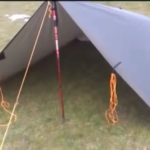Tips for Organizing Your Time in a Long-Term Survival Situation
We talk a lot about getting self-sufficient and preparing for the long haul after a disaster or crisis. However, it’s really easy to forget that life goes on after the fact. It’s important that we take time to envision how we will manage day-to-day living and organize ourselves in order to ensure that tasks are accomplished and routines are established.
Big and Little Projects
Remember that every aspect of our lives will be encapsulated in our shelter, bug-out-location or homestead. There will be the need to provide continual maintenance and upkeep, manage crops, livestock, food supplies, teaching children, and a million and one other tasks. While we don’t want to get to the point where we are over-organized, it’s important that we are developing a schedule and overall routine that addresses the big things as well as the everyday tasks.
Planning ahead is important, especially when it comes to big seasonal projects. For example, when do you start to prepare your garden for planting? When do you rotate and update your food stockpile? How often will you need to clean your hen house or cut firewood? These big projects involve a lot of hard work and time, and it’s important to get a sense of a weekly, monthly and annual rhythm of things in order to make sure that these tasks are managed properly.
You also need to think of the little things such as cleaning, doing laundry, hunting or gathering food, replenishing supplies and cooking. It’s a lot easier to plan our lives now as we have schedules and responsibilities that we work around. However, once we are at a point where we are required to be in charge of everything, it can be more of a challenge.
Start Brainstorming and Scheduling

Now that you have a sense of the wide-range of tasks that will turn your long-term survival living into a full time job, it’s time to brainstorm and make a schedule. This exercise will help you to see the big picture of things and give you a chance to start organizing your time. The point is not to make a perfect schedule now that you will follow later. Rather, this process will help you to get a sense of the amount of time and work that it will take to manage your home and family.
Think of tasks that you need to do every day. This is the easiest, because most of them are very basic. Then, start to think of weekly projects. Move on to monthly tasks and finally things that need to be done on a seasonal basis. Think of times when you will be at your busiest, such as the spring and summer. Think of what you will be doing in the dead of winter, and how you can use that time to prepare for the upcoming year. You will be amazed at how quickly your calendar will fill up and why it is so important to plan ahead in order to accomplish many projects.
Delegating

Remember that unless you are alone, you will need to divide tasks up among family members or those in your party. Everyone will need responsibilities that keep them productive and give them a sense of purpose and focus. Try to align tasks with their individual strengths and interests and put the pieces together so that everyone is sharing the load fairly. Again, this is just an exercise to do now so that you get a sense of what you will need to establish later. However, it’s a very important process, and it also gives everyone a chance to get more involved in your overall preparedness efforts.
None of us have any idea how different or lives will be following a crisis when we are forced into a long-term survival situation. However, we need to start thinking about possibilities now in order to get a sense of how we will manage our affairs if and when that time comes.
One way to get a sense of what to expect is to look at those who are already living off-the-grid or on a homestead. These folks are at an advantage because they generally have already established routines. Take time to learn from them, follow their advice and see how you will be able to walk in footsteps similar to theirs.
In the meantime, start paying attention to how you will live after a SHTF scenario unfolds inasmuch as you are preparing for its arrival now.















